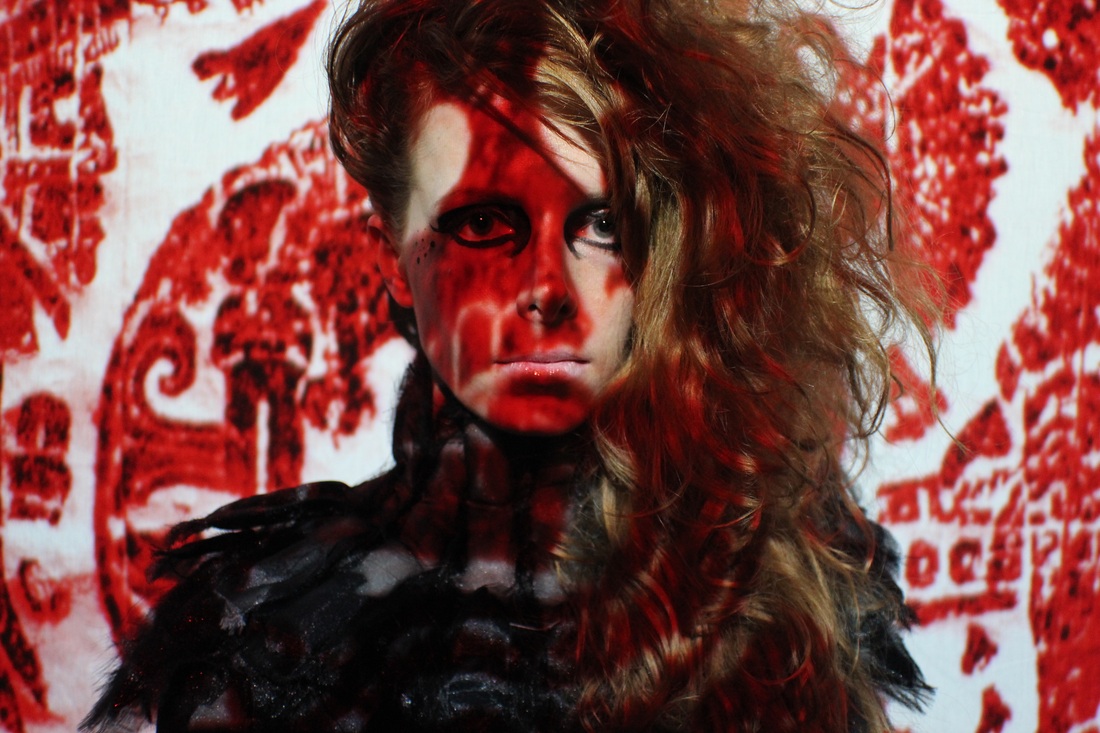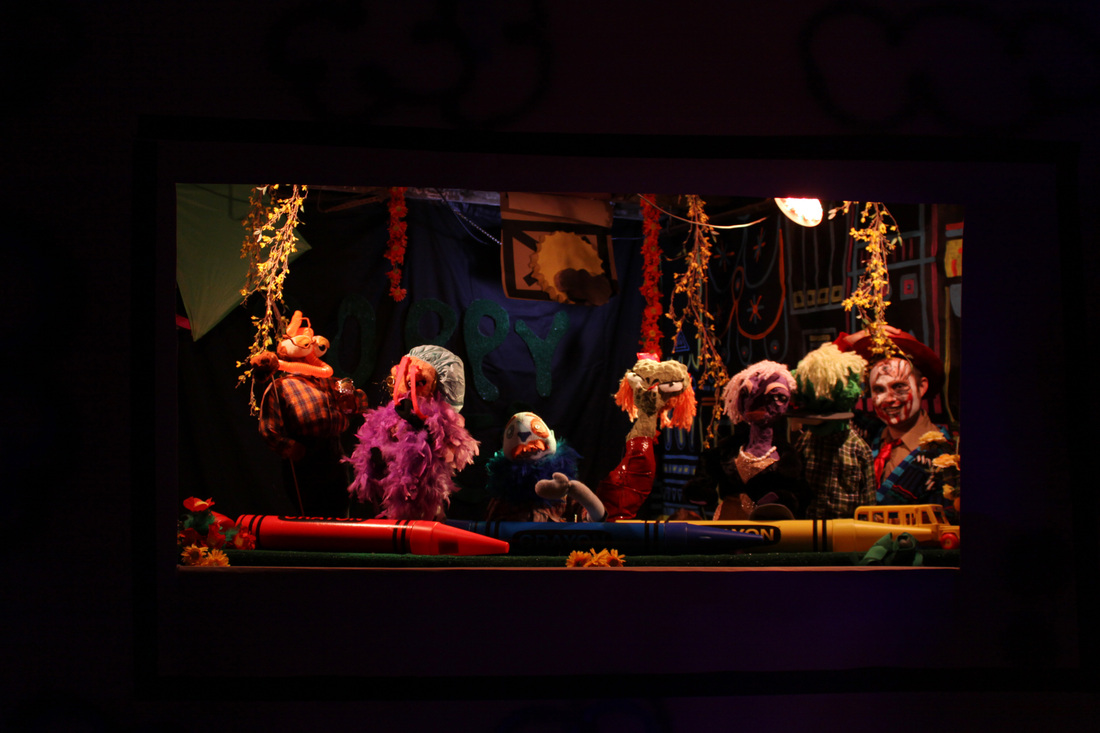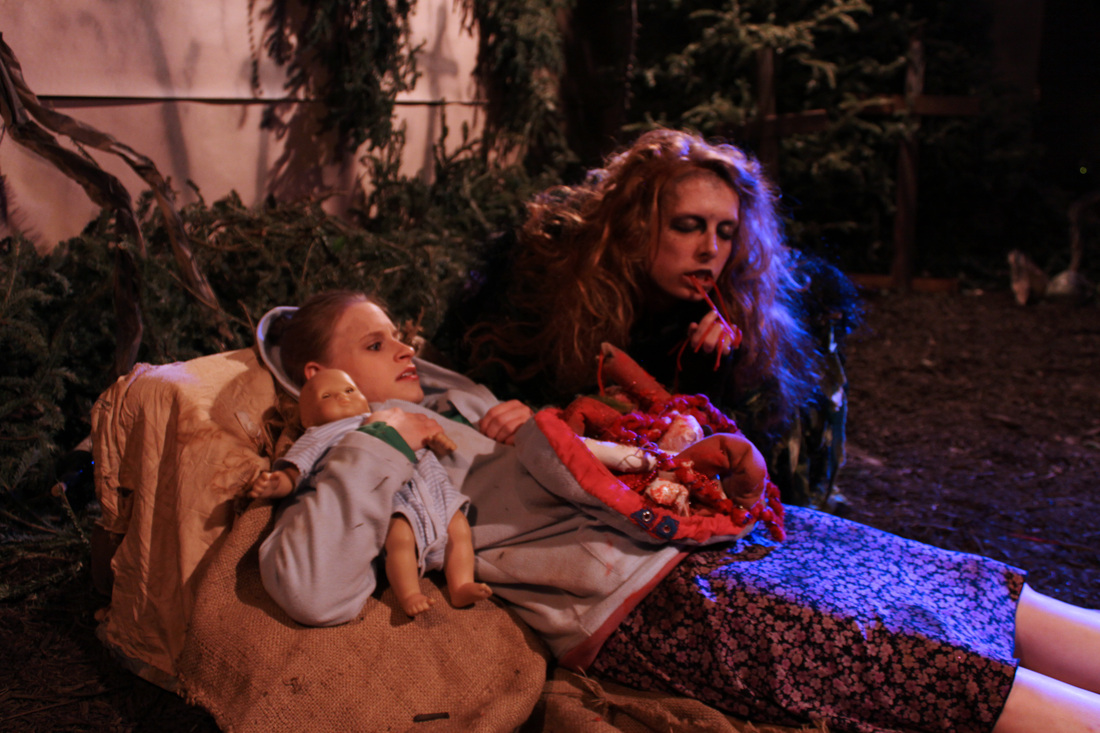|
JACQUELINE LAWTON: Why did you decide to get into theatre? Was there someone or a particular show that inspired you?
CARLY J BALES: I suppose this is the part where I talk about seeing Sound of Music when I was five and knowing that’s what I wanted to do with the rest of my life but, truth be told, it’s a little more subversive than that for me. I have a love/hate relationship with the theatre in which I am constantly searching for that electric and personal live experience which eludes me more than it appeases me. I was drawn to theatre through acting. As a peculiar and awkward youth, the transformative power of being other people in other worlds was phenomenal. By the middle of college, however, I was bored to death with most of the traditional plays I was seeing and focused primarily on film for the next few years. While I’ve come back to the theatre, I think that sentiment has stayed with me and molded my approach to it. At EMP, our programming is highly multi-disciplinary, immersive both physically and emotionally, and defiantly strange. JL: How long have you served as Artistic Director at your company? What drew you to the position? What keeps you there? CJB: I cofounded EMP with a small group of college friends in early 2010. We started with our first devised piece, WE’RE ALL GONNA DIE! and it has blossomed from there. I realized early on that I enjoy creating frameworks of worlds to play within. In this particular theatre piece, we transformed a warehouse space into a post-apocalyptic, consumerist wasteland incorporating performance, live music, dance, film, and visual art. There was a palpable excitement in the work from both our team and the audience. What started as a fun experiment quickly became a full-fledged operation with our own space in Baltimore three years later. What keeps me there? Well, I have yet to work with another group of folks so eager to play and be weird and produce quality new work at the same time. Besides, a life without EMP is no life at all, friends (JOIN US). JL: What is the most valuable lesson you learned during your tenure? Also, what traits do you feel a successful artistic director should have to support the health and growth of an organization? CJB: Communication. God, it’s so simple and yet so vast. Working with a lot of different artists for different events (we have a full schedule of programming in addition to theatre) and coordinating with our own tiny admin team has provided a rich training ground for how to effectively and smoothly communicate with each other online and elsewhere. I feel like a successful artistic director is personable and approachable, open to new ideas from anywhere, but who provides a strong, characteristic voice for the organization and its programming. JL: What excites you most about being an Artistic Director? What is your greatest challenge? CJB: I do what I want! Okay, that’s only partially true. But really, I love working with developing artists on new and exciting work. I love being able to provide people with a platform to hone their talents in a real, tangible sense. I also love the ability to have a crazy idea or read a bizarre, seldom-produced piece and actually do it. The greatest challenge (other than lack of producing space in DC) facing me currently is juggling my artistic obligations with growing our organization administratively and financially. Like many start-ups, we have a lot of passion but few resources and a very small team. EMP has had fortuitous success in our first years as a non-profit and arts collective. We started our multiuse art space up in Baltimore that has opened its doors to hundreds of industrious artists and over 50 events in the past year. We’ve also received great press and support from the community. Now the challenge lies in further developing our sustainability and our board in order to take ourselves to the next level of producing (and, you know, to pay our artists and ourselves living wages for work). I want to reward hard work and artistic risk-taking not discourage it. JL: If your work as an artistic director doesn’t pay the bills, what else do you do? Also, how do you balance your role leading an organization with your work as a director? Are you ever able to direct outside of your company? CJB: Because I’m clearly trite, I am a director who works at a restaurant to pay the bills. It is quite the juggling act between these two full-time jobs and doing projects outside of EMP. However, I think it’s important not to be completely insular artistically. I’ve recently started to allot more time to work on acting and writing projects outside of our programming. It’s always refreshing to meet new artists in new venues so I embrace it when I can. JL: Looking at your body of work as an artistic director and a director, how conscious are you of selecting plays by women or people of color when deciding your season? Also, when it comes to hiring administrators, designers and other directors do you take race and gender into consideration? CJB: Ah, this is pretty huge for me on all accounts, especially in terms of gender. In my position, I feel I have a responsibility to represent, bolster, and showcase dynamic voices from women in theatre. Women are the foundation of this industry but when you look at major or successful theatres, the “faces” of those theatres are overwhelmingly male and, more often than not, that is reflected in the programming that is presented to audiences. This fact weighs in heavily for me when selecting plays, directors, designers, and artists for projects. It’s simply imperative for us to lead, represent, and motivate others to lead. Anyone who says elsewise is full of it. JL: DC audiences are . . . CJB: Ready to be shaken up. JL: DC actors and designers are . . . CJB: Talented, hardworking, and professional. JL: DC playwrights are … CJB: A little bit of a mystery to me. I don’t know nearly enough of them yet. Hey DC playwrights! Holler at me! JL: DC critics are . . . CJB: What they are. (I’m clearly bad at this game.) JL: What advice do you have for an up and coming theatre artists who have just moved to D.C.? CJB: Don’t be afraid to be weird. Don’t be afraid to fail. Make a stand and be loud. DC needs more of you. Don’t wait around for someone to follow. Lead a new wave. JL: What's next for you as a director and your company? CJB: Many things! We have our One Minute Play Festival arriving next month in our Baltimore space featuring all local playwrights and artists in a whirlwind of over 50 world premieres. Our next full-length is the world premiere of Condo Condo Condoland by DC playwright Liz Maestri in May. This piece is especially exciting because it first came to fruition in our Cans n Drafts writing workshop last summer. It exemplifies many things I’m passionate about and I am ecstatic to see it come to life. After that, I’m trying to produce another piece for DC audiences this summer. In addition to theatre at EMP, we also produce visual arts exhibitions, multimedia art events, film screenings, and writing workshops. So keep up with us on Facebook, Twitter, or our email list. More importantly, get your ass out to these awesome shows!
0 Comments
Your comment will be posted after it is approved.
Leave a Reply. |
My BlogI'm a playwright, dramaturg, and teaching artist. It is here where you'll find my queries and musings on life, theater and the world. My posts advocate for diversity, inclusion, and equity in the American Theatre and updates on my own work. Please enjoy!
Categories
All
Archives
June 2020
Reading List
|



